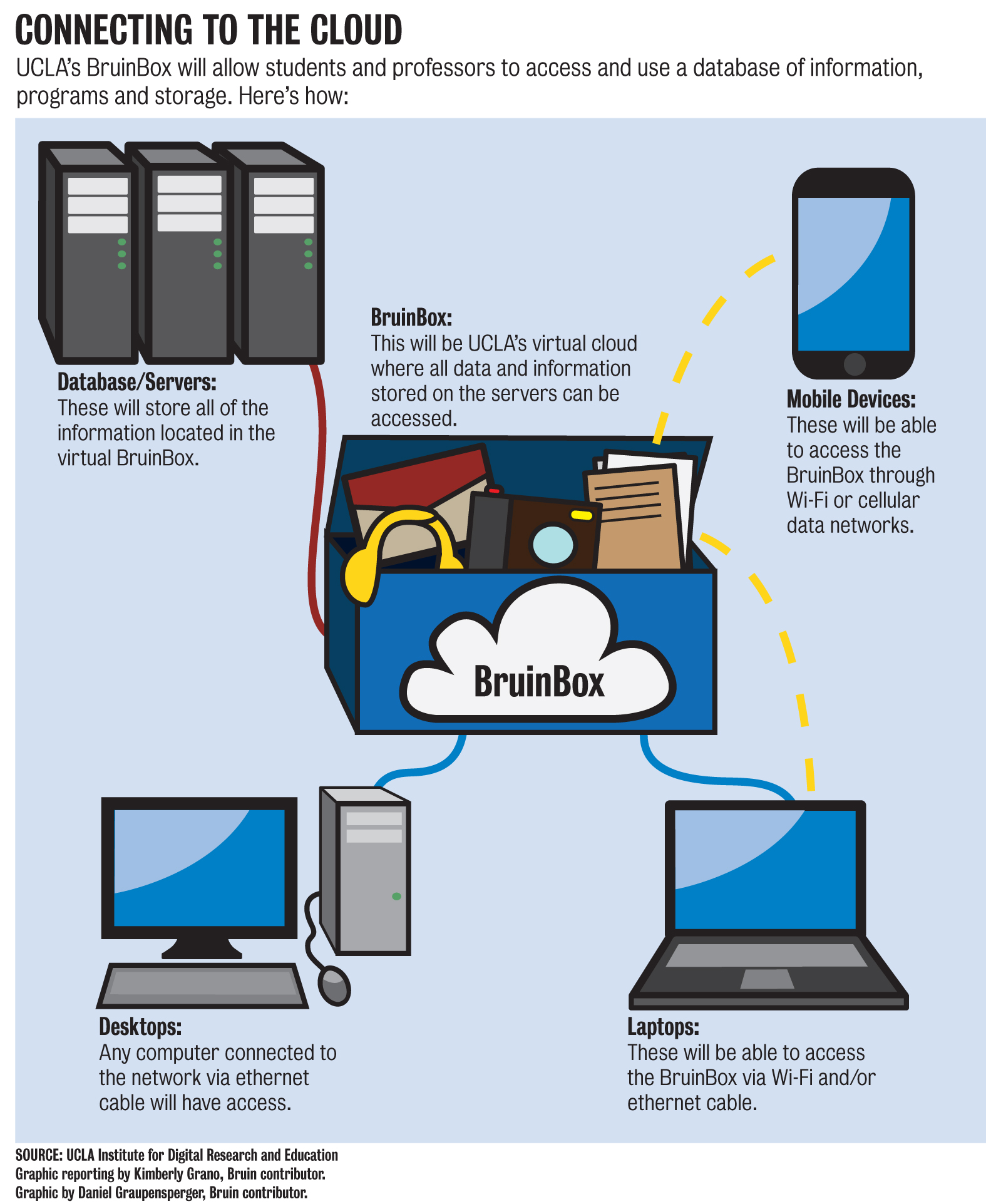
UCLA’s Office of Information Technology is in the process of developing cloud computing technology to simplify how students and faculty access online materials.
Cloud technology delivers services over a network, rather than downloading or installing them as programs on a computer.
At UCLA, cloud computing will allow users to access files from any computer, smart phone or tablet and will provide more storage than a computer hard drive by backing up files automatically, said Bill Labate, director of the Research Technology Group at UCLA’s Institute for Digital Research and Education.
Although “the cloud” is a loosely defined buzz word used to describe many different things, UCLA’s cloud services focus on providing infrastructure for students and staff to store data, Labate added.
“(The cloud is) a service in which you’re not in control of the infrastructure, the hardware or the software,” Labate said.
He added that users will only play a secondary role ““ the system will take care of processing the user’s information and will minimize the user’s responsibilities.
Three cloud computing projects are currently underway through the Institute for Digital Research and Education. One project, called BruinBox, is a shared data space resource that will be available to UCLA students and faculty, said Tajendra Vir Singh, a lead developer on the project.
Students will be able to access their documents, pictures and music from BruinBox through cloud storage, Singh said.
BruinBox would make collaboration convenient, eliminating the need for flash drives or email to transport files from computer to computer, Singh added. Files would be stored on servers instead of on the student’s personal computer but could be accessed from anywhere.
Cloud computing is also being applied to UCLA’s Common Collaboration and Learning Environment website, which many professors use to provide class resources for their students.
Labate said the CCLE update would make the website more useful for both students and professors by allowing faculty to easily include multimedia, such as YouTube videos.
Labate and his team are also working to provide cloud services to benefit UCLA researchers through high performance computing, which would allow users to perform many tasks and process enormous amounts of data very quickly.
Using this data management service, UCLA researchers would be able to access large quantities of data shared by other researchers, without having to download it onto their computer. This application of cloud computing could streamline research and allow for easy communication of information between researchers, Singh said.
Another project, Cloud Storage for Archival Data, is funded by a grant from UCLA Research Informatics and Computational Data Development.
The service is intended to allow the university to store large amounts of files that do not need to be accessed every day. A separate service from BruinBox, the project uses the same cloud technology to store data.
